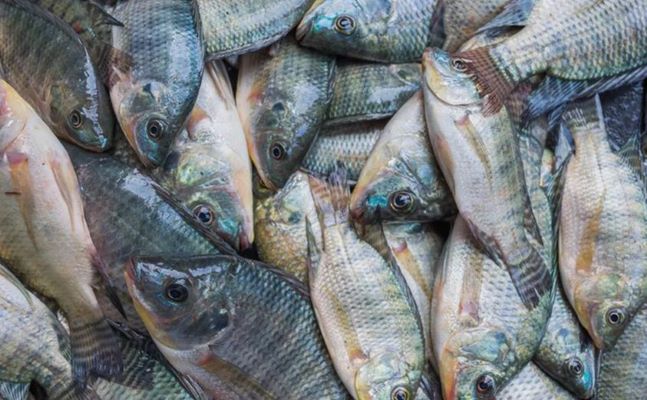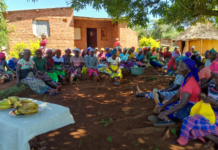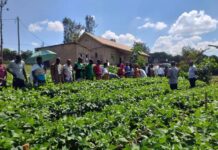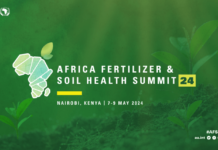Kakamega County in the western region of Kenya has landed a lucrative deal to export not less than 10 tonnes of fish to Italy every week.
This makes the devolved unit the first in the country out of the 47 counties to secure such a deal.
According to the county administration, Kakamega is banking on the Ksh120 million Lutonyi fish processing plant located in Kakamega town to meet the trade target.
“In order to ensure constant production and supply of the fish to the factory, we have also allocated money in the county budget to help train farmers, give them fingerlings and feeds, establish aggregation centres for their fish, and pond liners at subsidised cost and, finally, market,” said Ms. Jessica Wesonga, Kakamega County Chief Officer for Fisheries Development.
In this, the county is expecting to earn Ksh539 million from the new deal.
Export certification
The county got export certification July 25 this year to begin exporting fish to the European Union market after it met the required standards on fish aggression, warehousing and international fish exports.
The certification issued by the Aquaculture Business Development Programme after a series of evaluations in collaboration by the International Fund for Agricultural Development (IFAD) ranked the county fish processing firm as one of the best fish factories in Kenya in terms of compliance and it has met all the standards locally and internationally.
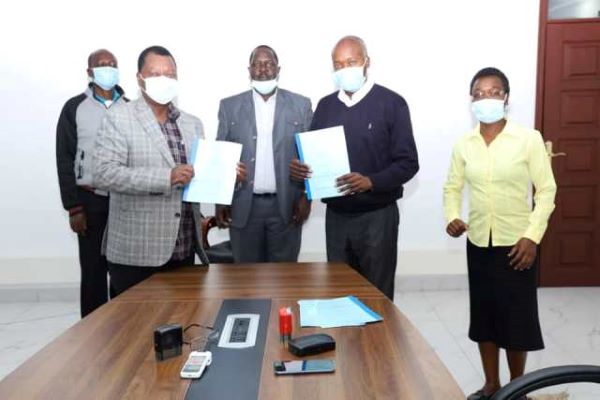
Operations resumption
Though Lutonyi was commissioned in 2021 by then the Devolution Cabinet Secretary CS, Eugene Wamalwa wrangles among its directors over its daily running and management have seen operations stagnant.
However, the county signed a Memorandum of Understanding with DAS Group Kenya Limited, the investor in the factory which has since resumed the operations of the factory starting November 3 last year.
According to Samwel Ondieki, the DAS Group Chief Executive Officer the first consignment of fish will leave the country next week after the renewal of export permit by the Directorate of Fisheries.
“We are waiting for the last inspection from the directorate of fisheries to approve the exportation of fish to Italy twice a week and once the directorate approves what we have done in terms of compliance. This is to happen in less than two weeks then we will be exporting our fish in two weeks’ time because we have a ready market. What is remaining is just delivery,” said Ondieki.
Market expansion
He added that the factory has expounded on its international market stating that the next destination is Dubai, the UK, and the Netherlands where the fish plant has also secured a ready market and is only awaiting clearance by the directorate of fisheries unlike in Italy where they have already signed a Memorandum of Understanding.
“In a week’s time we will be traveling to Dubai for business engagement, there is a ready market and we are going to finalize our trade ties on the quality and quantity of fish to export,” said Ondieki.
The factory has so far established 27 European countries as its potential market in addition to wide and large network market locally where they do their supplies.
“We are supplying our fish products across the country with large markets being supermarkets and Nairobi city and we hope to engage more fish farmers to ensure there is an increase in fish production due to the huge demand to meet,” said Ondieki.
Production capacity
The fish factory is currently sourcing its raw products from 1,1000 fish farmers in the 14 counties of the Lake Region Economic Block (LREB) with 6,976 farmers from Kakamega County benefiting.
Currently, the factory is processing 15 tonnes of fish per day with the factory having the capacity to process and export 20 tonnes of fish per day with the annual demand for fish projected to be 7,000 tonnes.
The factory is one of the four facilities constructed under the 2008-2012 ESP alongside other fish factories in Meru, Nyeri, and Migori.



